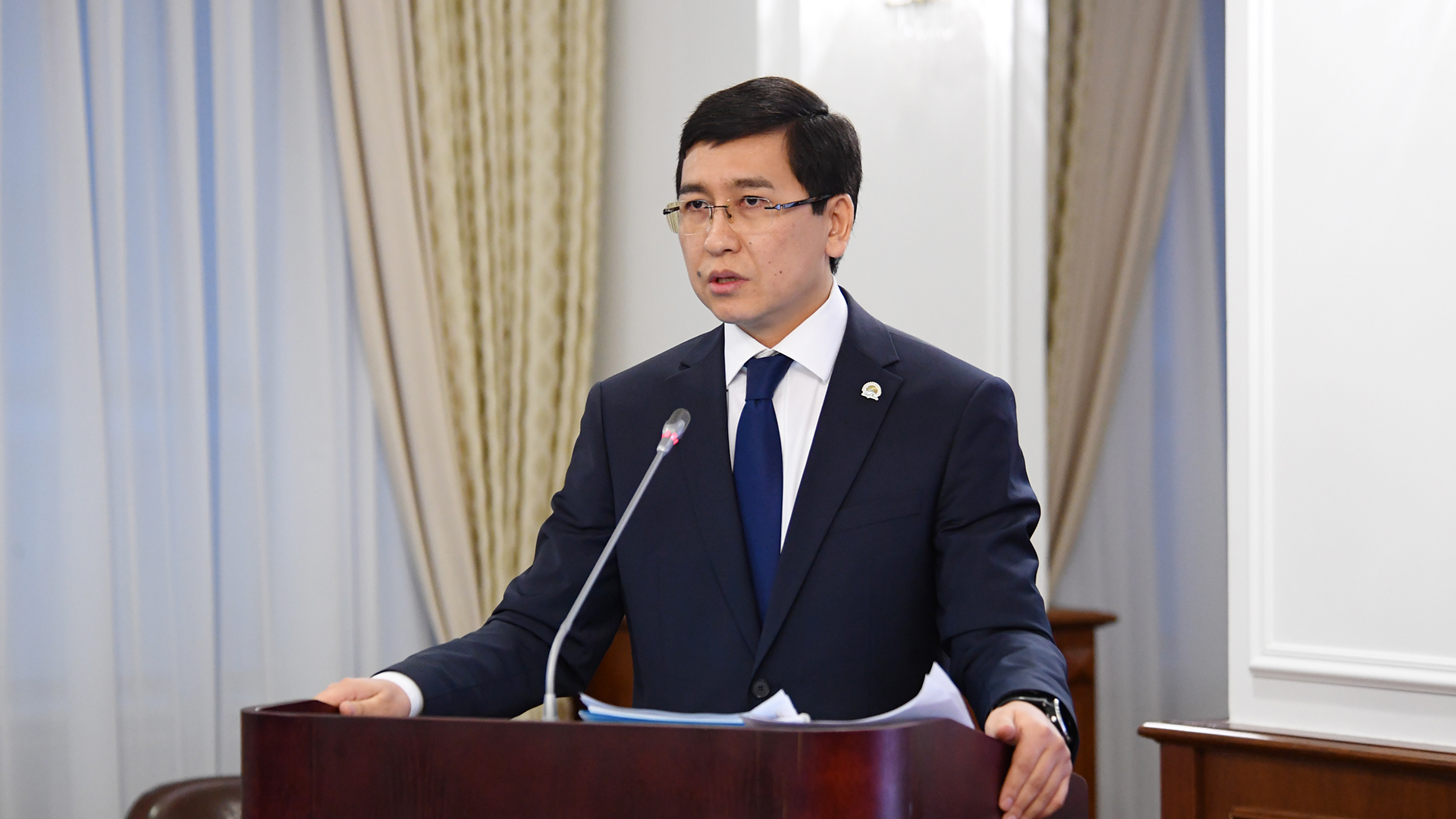02 September 2021, 14:04

At the government session chaired by Prime Minister Askar Mamin, measures to implement the Address of the President of the Republic of Kazakhstan Kassym-Jomart Tokayev to the people of Kazakhstan "Unity of People and Systemic Reforms — Solid Foundation for the Country's Prosperity" were considered. Minister of Education and Science of the Republic of Kazakhstan Askhat Aimagambetov reported on the implementation of instructions in the educational sphere.
First. On the construction of 1,000 new schools.
“This year we will introduce 200 new schools. Further, it is planned to build 200 schools each within 4 years. For this, 4 mechanisms will be used. This is the use of public-private partnerships, the development of a network of private schools, targeted construction from the state budget, the construction of schools from modular structures. Work will be carried out on the inventory and development of an interactive map of land plots for the construction of schools, the development of modern standard school projects for 1,500, 2,000, 2,500, 3,000 student places, the launch of an electronic portal for monitoring the construction of schools,” the minister informed.
Second. It is proposed to start the transition of full-fledged rural schools to per capita financing from 2023.
According to Aimagambetov, this will solve the urgent problem of the gap in quality between urban and rural schools. There is a positive result of the transition of urban full-fledged schools in the country to per capita financing. This is the equalization of funding for schools in different regions, strengthening the material and technical base of schools, increasing the efficiency of the use of budget funds and stimulating the inflow of investment in education.
Third. On revising the frequency of professional development of teachers to "at least once every three years".
For this, as noted by the Minister of Education, a new model of teacher professional development will be built. Within the framework of it, amendments will be made to the Law of the Republic of Kazakhstan "On Education". It is also planned to introduce external accreditation of professional development organizations and a unified register of educational programs. Courses for teachers will be offered free of charge only.
Fourth. With the support of the winners of international intellectual Olympiads, the issue of awarding grants for admission to universities without participation in the competition will be legally regulated.
Also, in order to stimulate and support participants in international Olympiads in intellectual areas, it is planned to establish one-time cash prizes. There will also be one-off cash bonuses for teachers and mentors who have prepared the winners.
Fifth. For the improving programming skills, vouchers will be allocated for training in programming schools. For this, the project "Cifraly Bilim" will be developed and implemented.
Within the framework of the Digital Teacher project, children from socially vulnerable families will have the opportunity to receive additional online classes. An appropriate mechanism will be developed.
“All educational institutions will be provided with access according to the single window principle. The platform, which serves as a single authorization window for all participants in the educational process, covers all stages from planning and creating a lesson to assessing a student and completing his homework,” the minister said.
Sixth. For early career guidance of children, together with NCE Atameken, a new model of career guidance will be developed — the Bagdar project.
The project includes professional diagnostics of schoolchildren, vocational guidance, professional tests, work with parents, the introduction of vocational guidance, as well as training in new approaches to vocational guidance.
Seventh. To provide young people with free education in colleges, the project Zhas Talap will be implemented.
“The Zhas Talap project will be a logical continuation of the Free Technical and Vocational Education for All project. We are implementing it together with regional akimats through co-financing from the republican budget. The expected effect is full coverage of 9th grade graduates with free education who want to study in colleges,” the minister said.
Until 2025, the state order will gradually increase to 70 thousand seats. At the first stage, in 2022, the share of 9th grade graduates from among those wishing to get education in colleges will be 70%.
Eighth. In order to adapt curricula, work will be carried out on the design and development of innovative programs, updating educational programs taking into account the needs of the labor market, and providing micro-qualifications within the framework of Minor programs.
According to Aimagambetov, the requirements for universities will increase. In order to speed up the process of closing universities providing low-quality education, it is proposed to amend the Law on Education, the Law on Permits and Notifications.
First, it is proposed to establish the validity period of licenses for universities, cancellation of automatic renewal of licenses, transfer of the function of depriving universities of licenses to an authorized body, establishment of administrative responsibility of founders for non-fulfillment of obligations to transfer students in case of university closure.
Second, the need has matured to adopt a National Standard for Quality Assurance in Education. World experience shows that many countries have national quality assurance standards and regulations. This will be a guiding document for ensuring the quality of education, taking into account the requirements of the current legislation and national interests.
Ninth. Measures to develop science will be taken
For this, changes will be made to the legislation on science by the end of this year.
“The basic funding will include the salaries of leading scientists. Criteria and selection rules for direct funding of research institutes engaged in fundamental research will be developed and approved. It is also planned to increase the terms of grant financing from 3 to 5 years and introduce the institution of appeal of decisions of National Scientific Councils. The Ministry will make every effort to implement the above tasks set by the Head of State,” the Minister of Education concluded.
Stay updated about the events of the Prime Minister and the Government of Kazakhstan - subscribe to the official Telegram channel
Subscribe